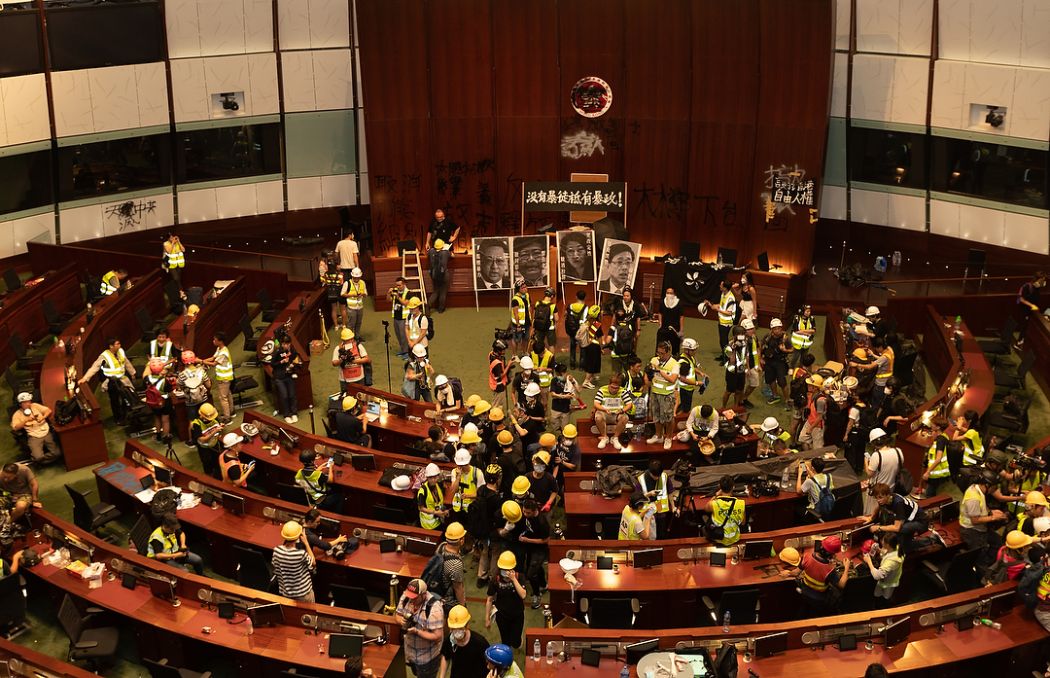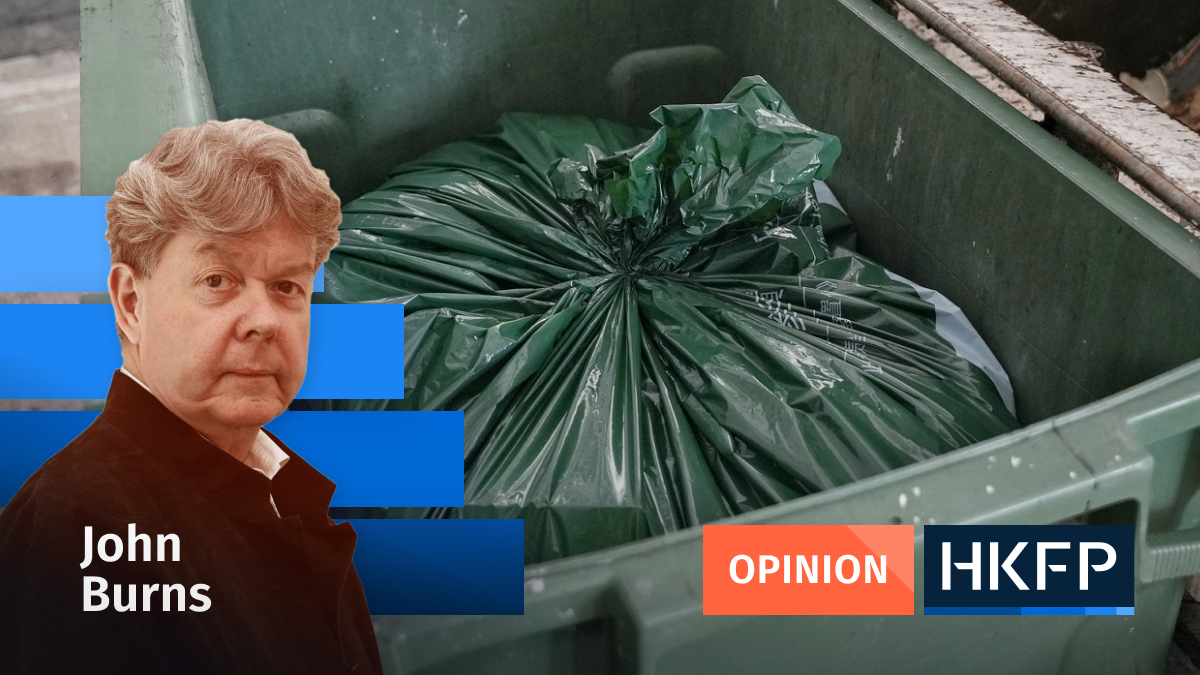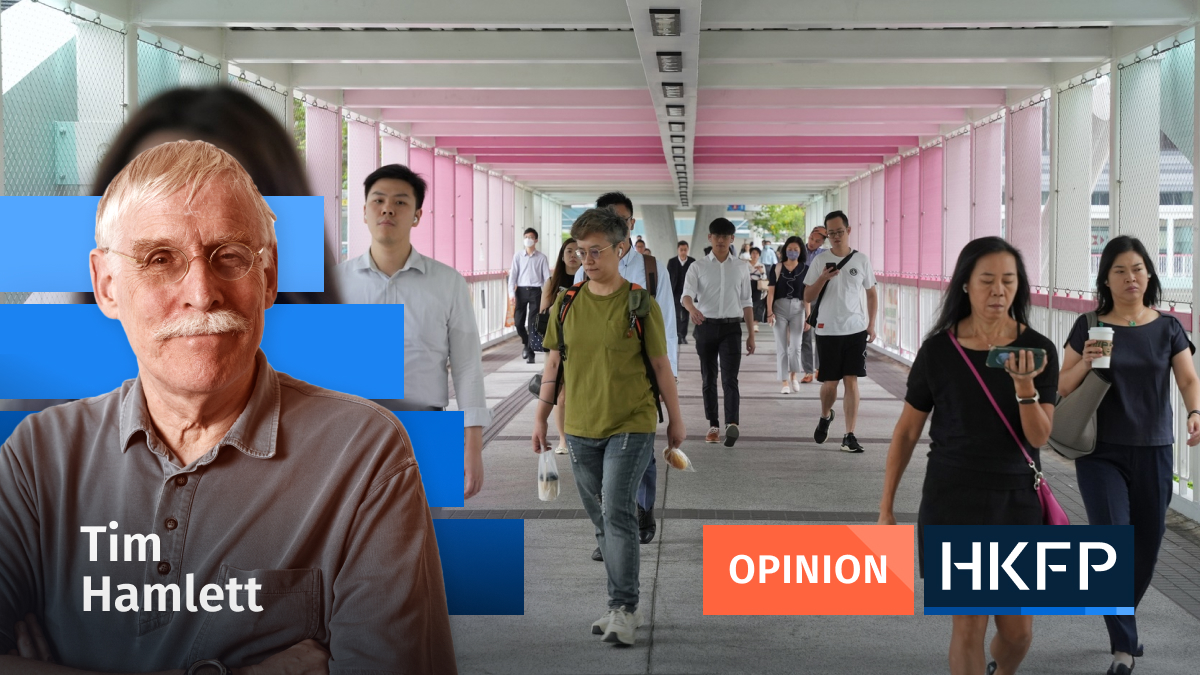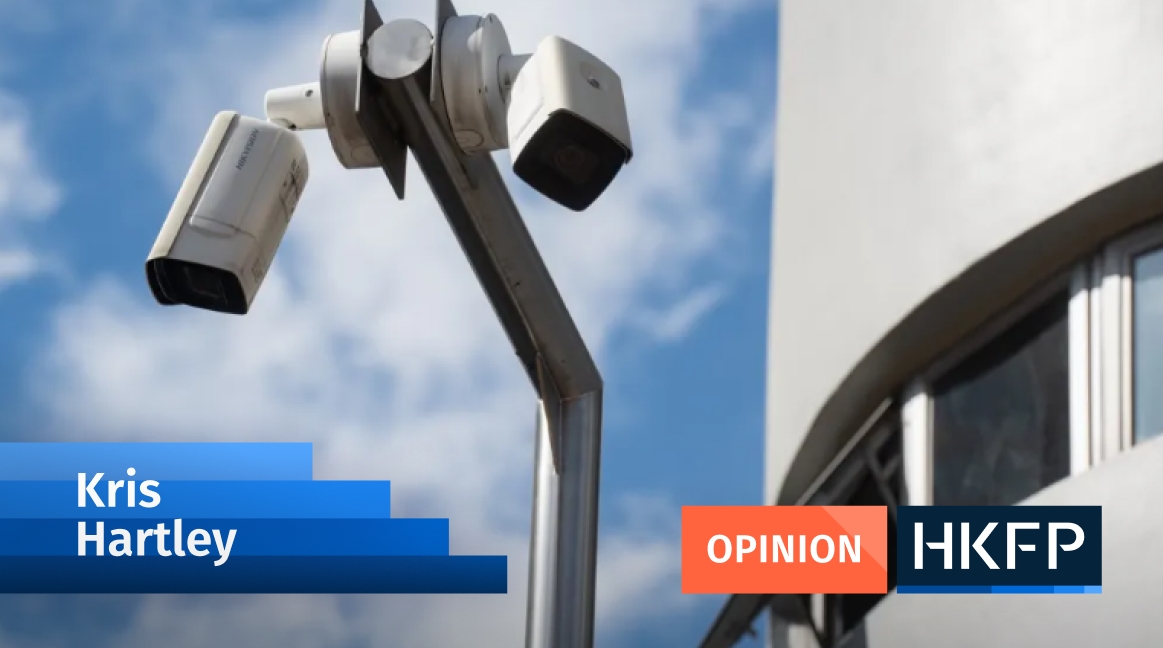Last week’s mob invasion of the US Capitol has been the source of much delight among the pro-Beijing crowd. The superficial similarities between that incident and the 2019 takeover of our own LegCo were quickly blown away by my colleague Ilaria Maria Sala.
In our case, nobody was killed, the Council was not in session and, when the hour struck twelve, the intruders left peacefully. During their brief occupation they behaved much less badly than the protesters in D.C.

Despite these differences, there is one glaring similarity: just as the protests in Hong Kong were the result of a broken political system, those in America are too.
This may sound like an outrageous claim. America is the world’s biggest economy, is a staunch supporter of democracy around the world, and penalises countries that are not democracies. Candidates may stand for office no matter how loony their platform, people vote, and the winner – after the court challenges that are inevitable in America’s litigious society – gets the job.
That’s all well and good but it obscures the reality. What America has is not democracy but an elective oligarchy. Loony candidates may stand – indeed, one did four years ago and won – but he only won because he was personally wealthy enough to do so. Poor people, loony or otherwise, running for office in the United States, have no chance irrespective of their platform unless they can attract corporate backing.
On top of that, there is the gerrymandering (think of our Functional Constituencies where, like the U.S., politicians choose their voters rather than the other way round), the duopoly on power of the Democrats and Republicans (need I even spell out the local parallel?), the way the two sides consistently talk past each other – often using the same words (e.g., “heal”) to mean quite opposite things.
But what I find most striking is the similarity of America’s response to Hong Kong’s.

First and foremost, just as no one in power in Hong Kong has ever seriously suggested that the system is not fit for purpose, I am not aware of a single mainstream figure in the U.S. who has suggested that their system is likewise no longer fit for purpose. The protesters (or mob) in the Capitol were angry and felt excluded – as many in Hong Kong feel – from politics; their needs are ignored. That does not excuse their conduct – in LegCo or the Capitol – but rounding them up in droves will not address the cause of their grievances.
The response, indeed, has been legal warfare. The first step has been to blow up the incident out of proportion. Yes, people died in the Capitol and my sympathy is with their families. But let’s not pretend that this was a serious, organised and considered attempt to overthrow the entire system of government. It was nothing of the sort. It was a protest that got out of hand, a mob that went on a rampage. That’s bad, but it’s hardly the end of a government with a US$750 billion annual military budget.
Worse yet, Nancy Pelosi invoked the “s-“ word, sedition. This, truly, is frightening. In 2009 (a mere 32 years after a 1977 Law Commission recommended it do so), Britain took sedition off the books as a crime. Sedition, unlike subversion and insurrection, merely challenges the authority and not the power of the state. As such, the commission determined that sedition was not a sufficient threat to state power as to warrant a carve-out in freedom of speech.

The commission also noted that sedition was still on the books of many former colonies, where it was being used as a tool of oppression, and felt that Britain should lead by example by taking sedition off the books. It is therefore a bitter irony that the only sedition charge brought in my 34 years in Hong Kong should be under one of those colonial laws – in this case, enacted in 1938.)
America’s own use of sedition has been, to say the least, parsimonious. The 1798 Sedition Act resulted in a single conviction for seditious libel against the president John Adams; the guilty person was pardoned by Adams’ successor, Thomas Jefferson, and the act repealed in 1801. The Sedition Act of 1918 likewise had few takers and, although it was upheld by the Supreme Court (twice), it was repealed in 1921. Seditious conspiracy remains in the U.S. Code (Title 18 Part I Chapter 115 Section 2384), but has rarely been used and, a great deal more often than not, cases have been thrown out of court.
The American method of enforcement, likewise, appears to be with special rather than normal police. The FBI has already given most-wanted prominence to those accused of the storming of the Capitol. Sedition does not count amongst the nine things that the FBI says it is set up to investigate; I suppose our own National Security Police are at least more focused in that respect.
Now, if this response sounds dismally familiar, it is the more so because it gives voice to those who say that, because every other country has national security laws, so should Hong Kong. Indeed, Hong Kong should. The problem is that those laws are a final recourse. If, as Clausewitz says, war is the continuation of diplomacy by other means, then surely insurrection is likewise the continuation of politics by other means. Or, to put it the other way around, if war starts when diplomacy fails, insurrection starts when politics fails.

The sad thing is that there are tried and tested political approaches to address those who have been, or believe themselves to have been excluded. The simplest is to listen to their grievances, identify the legitimate ones and fix them, and explain to them, as equals rather than in the usual condescending tone, why some of those grievances are not legitimate.
That failed to happen in Hong Kong, and every indication is that it is failing to happen in the U.S. By going after the disaffected rather than attempting to address their grievances – indeed by pursuing instead a purely symbolic impeachment of the one politician who, for all his faults, gave the disaffected some hope that they were being heard – America sets an example that does itself and the world a disservice.
Support HKFP | Policies & Ethics | Error/typo? | Contact Us | Newsletter | Transparency & Annual Report | Apps
| HKFP is an impartial platform & does not necessarily share the views of opinion writers or advertisers. HKFP presents a diversity of views & regularly invites figures across the political spectrum to write for us. Press freedom is guaranteed under the Basic Law, security law, Bill of Rights and Chinese constitution. Opinion pieces aim to point out errors or defects in the government, law or policies, or aim to suggest ideas or alterations via legal means without an intention of hatred, discontent or hostility against the authorities or other communities. |
Help safeguard press freedom & keep HKFP free for all readers by supporting our team

More HKFP OPINION:
HKFP has an impartial stance, transparent funding, and balanced coverage guided by an Ethics Code and Corrections Policy.
Support press freedom & help us surpass 1,000 monthly Patrons: 100% independent, governed by an ethics code & not-for-profit.










